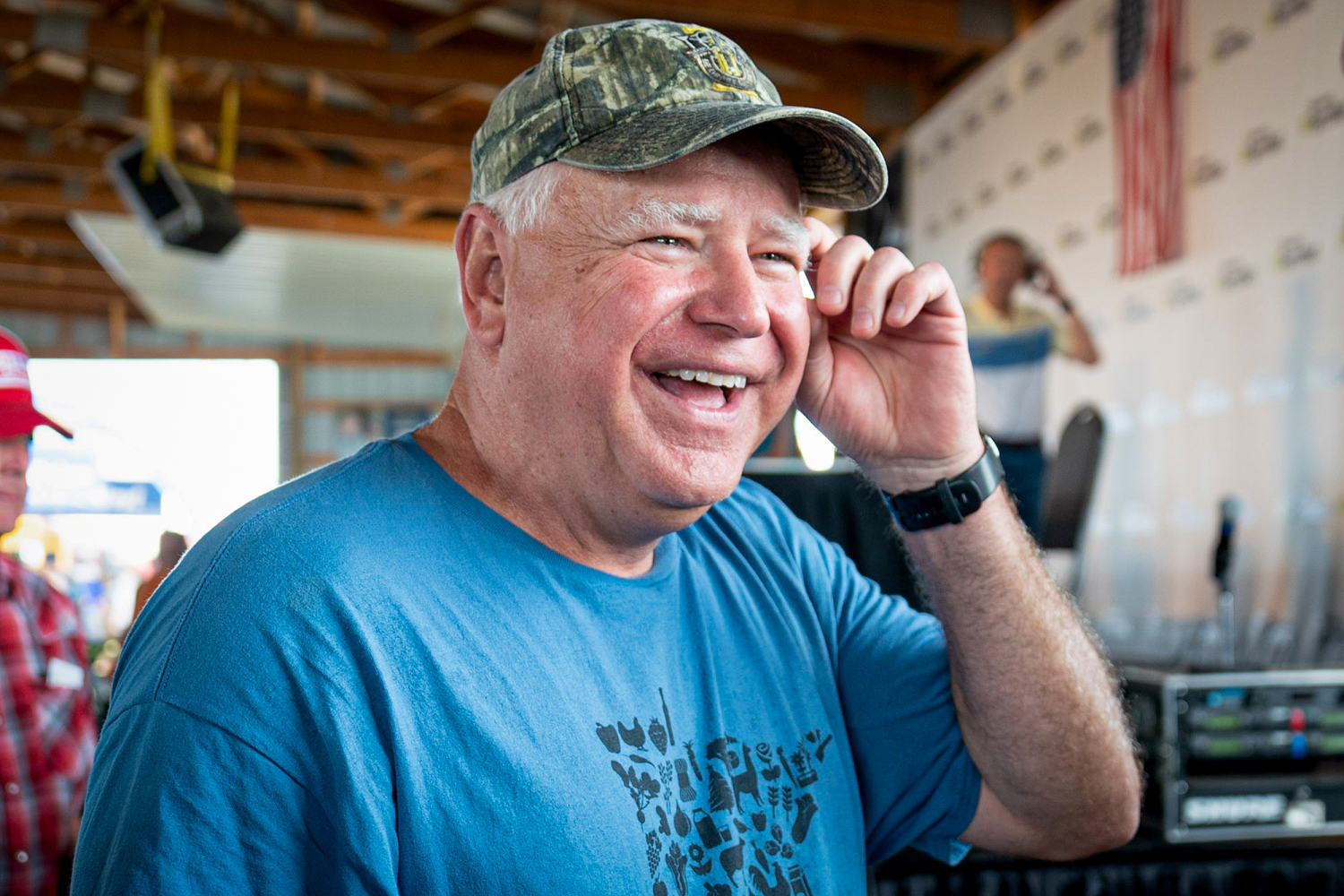
I like to joke that I’ve only ever lived in the colon of the country. From Texas to South Dakota to Minnesota, now Iowa — the states where people say they are from but rarely ever move to.
When I tell people where I live, after getting Iowa confused with Ohio, they ask me why I don’t just move. Why don’t I leave? Why don’t I get the hell out where I could maybe get some reproductive rights? What about my kids?
People used to be able to say that Iowa was a good place to raise kids. But with my state’s disinvestment from public schools, the book bans and attacks on trans kids, you can’t say that anymore. The people who love it here tell me to leave, too, because I’ve made a career of writing about the problems with this state.
In picking Tim Walz as her running mate, Vice President Kamala Harris seems to be sending a message to flyover places: that we aren’t forgotten.
In picking Tim Walz as her running mate, Vice President Kamala Harris seems to be sending a message to flyover places: that we aren’t forgotten.
Walz is a man who exudes an authentic Midwestern ethos. His rounded vowels and softened consonants are not a put on. Unlike the thousands of politicians who come to the Midwest to talk agriculture policy, roll up flannel sleeves, stand in front of a hay bale for a picture and then get the hell out, Walz is from places people write off. Having grown up in Nebraska, Walz moved to rural Minnesota and worked as a teacher at Mankato West High School. His wife, Gwen, and I attended the same small rural college that no one outside the twin cities or Lutheran Church culture has ever heard of.
Walz is the Midwestern dad of memes. Slapping his thighs and saying “whelp,” wearing camo not because he’s cosplaying, but because he actually likes to hunt. And it’s important that he is Midwestern, because like being middle class, being Midwestern is a self-designated identity marker of normalcy. This land is the middle of two coasts, pulled in between the perceived extremes, and it’s become a metaphor for American values.
The Midwest has many competing identities: First Nations, white settlers, the waves of immigrants who found a home here. And sometimes when someone will say something like, “Oh, Chicago is not Midwestern,” what they really mean is that it’s too diverse to fit their definition of the whiteness of this place.
But if definitions can exclude, they can also include. This land is a closed fist sometimes, but it can also be an open hand.
Walz’s history as governor is not one of exclusion; it’s one of openness, welcome and inclusivity. Walz’s entire identity is what we think of when we think of the average American, but his politics are radically inclusive. And, as such, he offers a different vision of what this country can be. His policies, which include giving kids free school lunch and offering paid parental leave, being vehemently pro-reproductive rights and LGBTQ reflect, not the bitter-chip-on-the-shoulder-own-the-libs politics that the Midwest has been defined by during the Trump era, but a generous and expansive political vision that harkens back to Paul Wellstone, Tom Harkin and Tom Daschle. Pundits like to write off this region, but recent progressive wins in Wisconsin, Michigan and Kansas show that this land is more complicated than it looks when you simply fly over it or look at it on an electoral map.
Walz himself has decried the reductivist thinking of red state/blue state maps, in 2023 noting, “We need to find the first person who put that red-blue map up and beat the hell out of them for putting that on, because it divided the country.”
Right after an inland hurricane tore through my town and people were struggling for help, a common refrain on social media was, “That’s what you get for voting for Republicans.”
He is right. The value of a land should not be decided on its politics. Right after an inland hurricane tore through my town and people were struggling for help, a common refrain on social media was, “That’s what you get for voting for Republicans.” As if the accidents of birth geography, and the intentional segregation of gerrymandering and voter suppression, meant people should suffer. I saw people saying similarly dismissive things after the energy crisis in Texas, and people will be saying it as Floridians suffer in the wake of its most recent hurricane. It’s a cruel calculation. One that equates politics with virtue and virtue with worthiness. But the reality is people need help simply because they are people.
And if this election is about who gets to define this country and who gets to be defined, picking Walz makes sense. He’s an older white man and he is out there calling Trump and Vance “weird” — aberrations from the norm — and that critique means something coming from him, a white male governor from a Midwestern state. A region so often mocked for its blandness that the blandness, like the Miracle Whip in the potato salads, becomes a binding agent — a cohesiveness we very much need in the vastness and complexity of America.

Leave a Reply